Since 1994, Vegan Action has been a non-profit organization committed to making the world a healthier, more compassionate place for animals, humans, and the environment. As we celebrate our 25th Anniversary, we wanted to share the history on how our organization started.
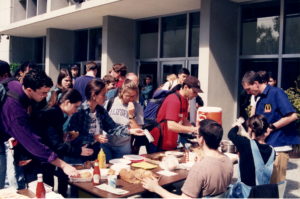
McVegan Campaign on UC Berkeley’s Campus 1995
Vegan Action was formed by founders Ori Brafman, Leor Jacobi, and Mark Schlosberg with the intention to have a separate Vegan group on the U.C. Berkeley Campus that was focused on food choices to promote veganism. Their first task being to get vegan options added to their cafeteria. With the expectation of pushback from the university and Cafeteria Manager, Ori and Leor were pleasantly surprised to hear that the Cafeteria Manager was willing to work to with them. Vegan Action even gave ideas and suggestions for potential recipes. This campaign then started to receive national press, since they were the first university to offer vegan options for students. With this success, the Cafeteria Manager started to receive inquiries from universities all over, so Vegan Action decided to officially form a 501c3 to fill that void. They started a campaign called Dorm Food, with the focus on helping schools and universities all over to get vegan food options available for students.
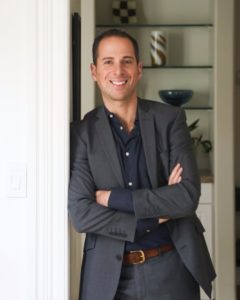
Ori Brafman, CoFounder of Vegan Action
In 1997, Vegan Action again gained national news attention with their McVegan campaign. In an effort to make vegan fun and exciting, and influenced by Adbusters parodies, they formed the McVegan campaign. Vegan Action did not want to share veganism with graphic imagery, but entice people in with fun and food. So the character Reggie McVeggie was created. Reggie was modeled as Ronald McDonald’s compassionate brother, and started handing out free vegan burgers on and near the UC Berkeley campus. They made t-shirts and stickers and the campaign gained popularity. Eventually, McDonalds learned of the campaign and was not happy about it. Their lawyers, called Ori and Leor’s residence and threatened a lawsuit as well as a cease and desist letter on using the golden arches logo. Vegan Action was able to find a pro bono lawyer to defend them and McDonalds backed down after national exposure.
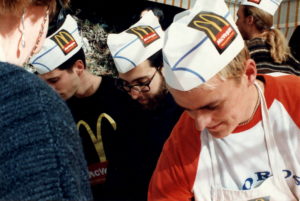
Leor soon after left the organization and David Blatte, an animal rights attorney, joined the group. He got them a small office in Berkeley on Shattuck Ave, and got a few used computers for them to get the www.vegan.org website started up and develop the online and print newsletter The Vegan News – all the news that’s fit to eat! Vegan Action won a Webby for the website in 1995.
David also introduced the idea of the Certified Vegan Logo, modeled after the one that the Vegan Society of the UK does. For those who aren’t familiar with the Certified Vegan Logo, it is a trademarked logo that helps consumers find vegan products easily. Since the creation of the Certified Logo in 2000, there have been over 1,000 companies certified. These products are sold in stores across North America, Australia, and New Zealand.
Today, Ori is a New York Times bestselling author. Founder and president of the Starfish Leadership and the co-founder of the Fully Charged Institute. He specializes in conflict resolution and he has a focus on non-violence which he promotes to those of society and higher leaders.
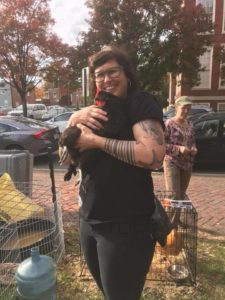
Krissi Vandenberg- Executive Director of Vegan Action
Since the creation of the certified logo, Vegan Action has moved to their current headquarters in Richmond, Virginia with Krissi Vandenberg as the Executive Director. While here Krissi has continued to outreach with volunteers, and eventually staff at over a hundred vegan and non-vegan events over the years. She has also spread vegan awareness to those in the Richmond area and throughout the east coast by speaking at multiple events. Interested to hear her side of Vegan Action history as the non-profit celebrates their 25th anniversary, I got a chance to talk to her about all things Vegan Action. Here is what she had to tell me:
How did you get involved with Vegan Action?
While still living in Richmond, I learned about Vegan Action and had ordered some literature and merchandise from them in 1996 or ‘97. When I decided to move out to the Bay Area, I was determined to volunteer with Vegan Action. So I started out in the office responding to emails, filling merchandise orders, and doing data entry. Eventually I became involved with planning and organizing tabling events, campaign planning, and finalizing the criteria for Vegan Certification. I also helped start an organization on the U.C. Berkeley campus B.O.A.A. (Berkeley Organization for Animal Advocacy) with two other Vegan Action volunteers: Erin (a UCB student) and her partner Andy. Two years later, the original founders and director were all moving on to other projects and I was asked to take over as the Executive Director. Later that year in 2000, I decided to move back to Richmond, Virginia and brought Vegan Action with me.
What made you go vegan? What has helped you remain vegan?
I chose to transition from being a vegetarian of 6 years to being vegan my second year of college at Virginia Commonwealth University. I met a few animal rights activists who were vegan, and realized it was the right decision for me in that I wanted to contribute the least amount possible to direct animal suffering and death. I remain vegan consistently since 1994, because I couldn’t be any other way after knowing what I now know. I’m aware of everything involved in raising and slaughtering animals for food. It cannot be justified to me. I do not need to eat animals or animal products and there is no acceptable reason for me doing so. I’ve seen the films, the imagery will be forever burned into my mind and therefore taste, desire, convenience, habit, nor politeness, none of these things come close to excusing extreme suffering and death of animals for a meal.
What were some of the early events of Vegan Action?
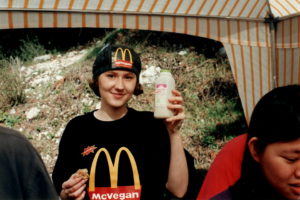 The impetus in 1994 was to get the UC Berkeley cafeteria to commit to providing daily vegan options for their students. Two of the founders, Ori and Leor, presented the argument that as paying students, it was the duty of the university to meet their food requests. Through meetings and discussions, the university agreed. The Vegan Action members then decided to expand their vegan advocacy beyond UC Berkeley and started the McVegan Campaign. Playing off of a McDonalds theme, they developed the character Reggie McVeggie who was a healthy and kind version of Ronald McDonald, and he passed out free vegan burger samples along with info on the benefits of choosing vegan options. This led to making McVegan t-shirts and stickers to which McDonalds found out about and sent a cease and desist letter. The case made national news and McDonalds eventually dropped the case for picking on a grassroots org. We kept this campaign going through 2001.
The impetus in 1994 was to get the UC Berkeley cafeteria to commit to providing daily vegan options for their students. Two of the founders, Ori and Leor, presented the argument that as paying students, it was the duty of the university to meet their food requests. Through meetings and discussions, the university agreed. The Vegan Action members then decided to expand their vegan advocacy beyond UC Berkeley and started the McVegan Campaign. Playing off of a McDonalds theme, they developed the character Reggie McVeggie who was a healthy and kind version of Ronald McDonald, and he passed out free vegan burger samples along with info on the benefits of choosing vegan options. This led to making McVegan t-shirts and stickers to which McDonalds found out about and sent a cease and desist letter. The case made national news and McDonalds eventually dropped the case for picking on a grassroots org. We kept this campaign going through 2001.
What makes Vegan Action different than other Vegan Advocacy Groups?
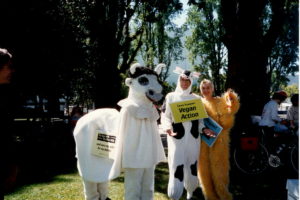
Vegan Action at Earth Day Parade in Berkeley, CA 1997
One of the most significant characteristics of Vegan Action is that we have a strong and steadfast view of animal liberation but with complete positivity and compassion behind it. For example, we do not advocate for bigger cages but we stand behind anyone making decisions that benefit animals like being vegan 6 days out of the week. We also focus on education with inspiration and encouragement, not with guilt, shaming, or shocking content. We provide information and try to make it as easy and fulfilling as possible. We want to support people becoming vegan and staying vegan. And then, for those people to be inspirational for other folks to consider veganism.
What was the inspiration behind the Certified Vegan Logo?
I can’t say with certainty because that development did begin before I became involved with the organization. I know there was the general goal of wanting to make it easier for people to be vegan by making it easier to find vegan products (initially food) in the grocery stores. And there wasn’t a vegan logo for products so someone needed to do it! The logo was trademarked in 1999 and was in use and in the marketplace in 2000.
In bringing Vegan Action to Richmond, Virginia from CA, what was the vegan scene like here in RVA 2000?
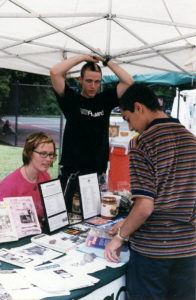
It was quite small and limited. I lived in Richmond previously in the 1990’s and when I left in 1997, we had an active Animal Rights/Vegan group on the VCU campus as well as the community organization Richmond Animal Rights Network which participated in demos, tabling events, food sampling and hosting educational opportunities. There was definitely a shift away from animal rights/welfare issues in the late 90’s in Richmond but I’m not sure what that catalyst was.
Has this vegan scene in RVA changed since then?
There has definitely been a resurgence in the vegan scene in Richmond. Obviously there have been the folks that have been here and holding strong since the 90’s, but there are so many more folks identifying as vegan or mostly vegan. The demand for vegan food and goods has increased so much especially in the last ten years and Richmond has responded. Richmond has become really vegan friendly and we are fortunate to have so many great restaurants offering vegan options. However, there isn’t a consistent vegan activist scene like there was in the 90’s and maybe there never will be. Perhaps things have just evolved differently because veganism isn’t such an outlier or an anomaly anymore. I would describe the vegan scene now as people just being posi vegans, having a positive influence naturally on others around them.
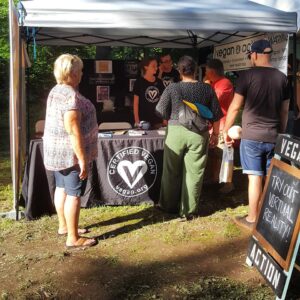
Vegan Action, tabling at Richmond’s VegFest 2018
What are some accomplishments from Vegan Action? These accomplishments can be in the area or nationally.
It’s very remarkable that there are now more than 1,000 companies with Certified Vegan products. We are lucky to have www.vegan.org, among the most visited vegan websites in the world. Locally, Vegan72, 72 hours celebrating all that is vegan in Richmond, has been a great success two years in a row sharing vegan food, highlighting vegan artisans, and bringing vegan speakers to town. Also growing from an all volunteer organization to having a staff of 7 is a great accomplishment and a testament to the importance of the work we do. 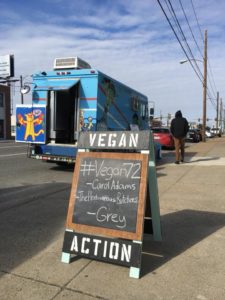
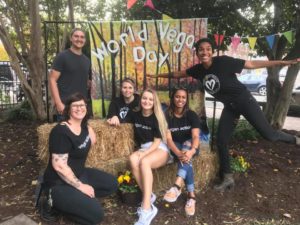
Any advice to aspiring Vegan Advocates?
As difficult as it will be, it’s important to not lecture people, force them to look at horrific footage, or harass them. If your true and honest desire is to inspire folks to make a positive and long-lasting change, for the right reasons, you have to be patient and let them do it on their terms. It’s our job as activists to provide the information and the tools for change, but you cannot force people to do it. Just be a good example, make people want to live like you do!
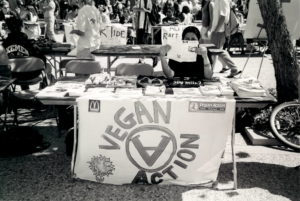
Written By Yhanni Guadalupe-Butcher.
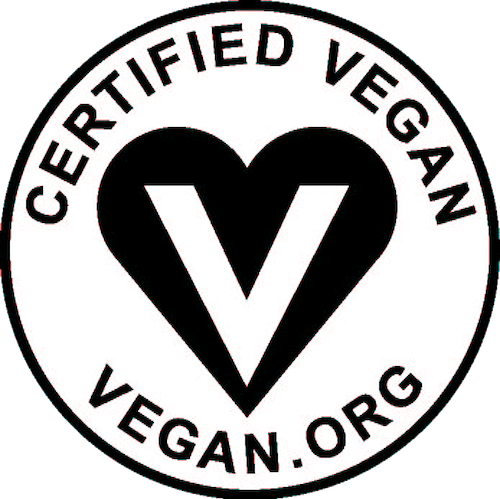
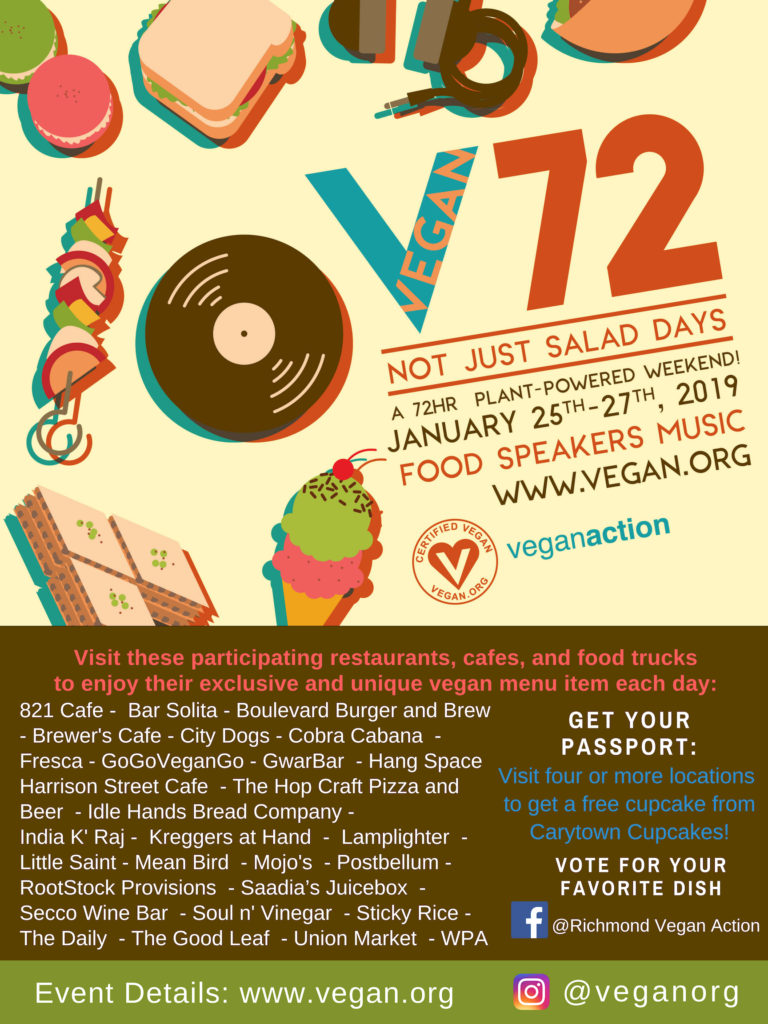

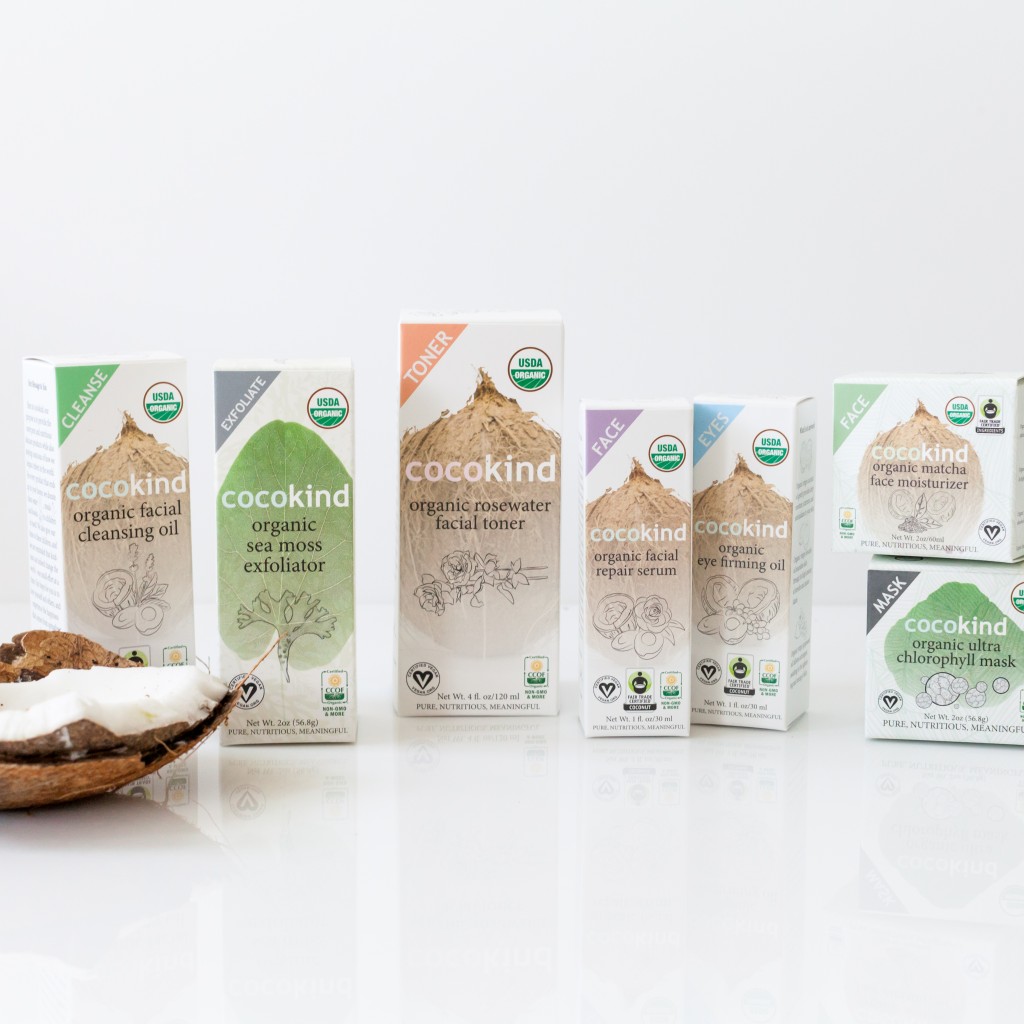
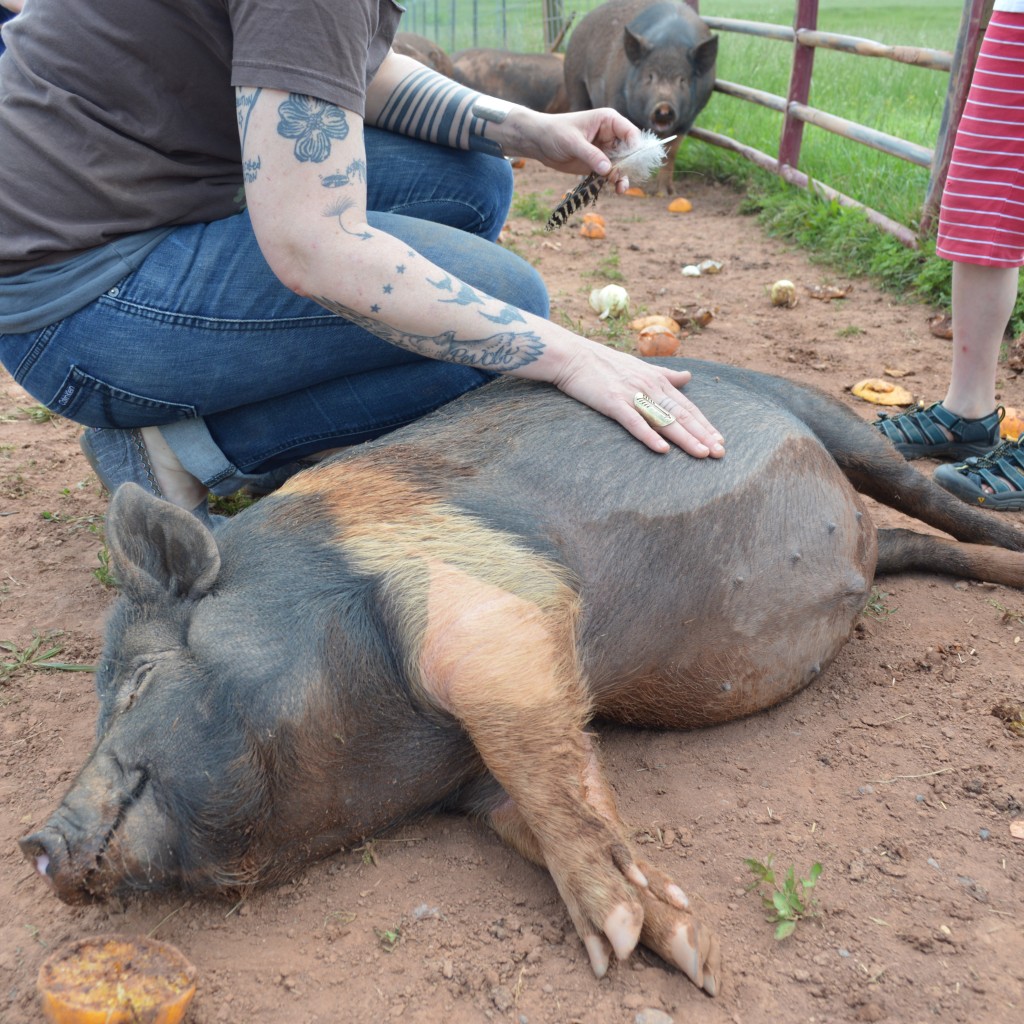

About The Author: Vegan Action
More posts by Vegan Action